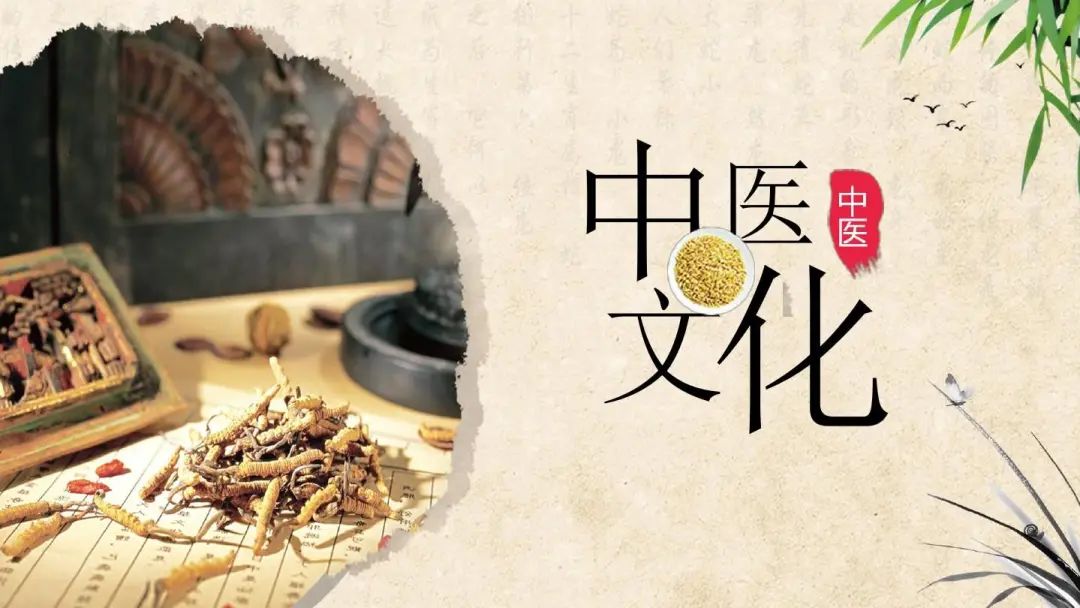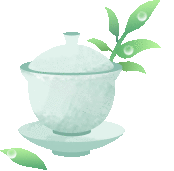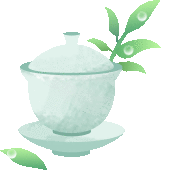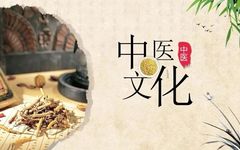In Traditional Chinese Medicine (TCM), the five organs refer to the heart, liver, spleen, lung, and kidney. The common physiological characteristic of the five organs is the transformation and storage of vital essence, and they are capable of housing the spirit, hence referred to as “Shen Zang” (神脏). The “Huangdi Neijing (黄帝内经) – Suwen – On the Five Organs” states: “The so-called five organs are those that store vital essence without leaking, hence they are full but not solid.” The “Huangdi Neijing – Lingshu – On the Organs” states: “The five organs are responsible for housing the spirit, blood, qi, and soul.”

TCM believes that the five organs are the center of life activities, with mental consciousness activities belonging to the five organs. Together with the six fu organs, they connect the body’s internal and external structures, forming a unified whole. Although the functions of the five organs are distinct, they coordinate with each other to maintain the life process.
 Ruler of the Organs: Heart
Ruler of the Organs: Heart
The heart’s position among the five organs is akin to the king in chess; its existence determines the outcome of the game, thus the “Huangdi Neijing” refers to the heart as the “Ruler of the Organs.”
The Heart Houses the Spirit
TCM posits that the heart houses the spirit. When the heart’s qi and blood are abundant, the spirit is nourished, leading to clarity of mind, quick thinking, and sweet sleep.
Conversely, if the heart’s qi and blood are insufficient, issues such as declining memory and poor sleep quality may arise.
Excessive Joy Harms the Heart
TCM believes that excessive joy can harm the heart, as exemplified by the character Fan Jin from the story of “The Examination” who experienced great joy that led to heart distress.
The Heart Opens to the Tongue
TCM assesses the heart’s function by observing the tongue’s shape and color changes, as well as the fluency of speech. For instance, individuals with frequent tongue ulcers may have excessive heart fire; interruptions in speech may relate to weak heart qi; and dark, swollen sublingual veins may indicate atherosclerotic disease.
Symptoms of Excess Heart Fire
Abnormal heart function often manifests as palpitations, chest pain, cyanosis of lips and nails, oral ulcers, insomnia with vivid dreams, and neurasthenia.
Nourishing the Heart through Diet
TCM suggests that red foods such as red dates, adzuki beans, cherries, and chicken or duck blood can nourish the heart; if heart fire is excessive, bitter foods like bitter melon can be consumed to clear heart fire.
Additionally, frequently making the sound “he (呵)” can help regulate heart function in daily life.
Meridian Regulation
We can also regulate the flow of heart qi and blood through simple massage techniques such as tapping the Pericardium Meridian, rubbing Neiguan (内关), striking Daling (大陵), and patting Jiquan (极泉).
 General’s Organ: Liver
General’s Organ: Liver
The “Huangdi Neijing” compares the liver to the “General’s Organ,” using the strong and impulsive nature of a general to describe the liver’s physiological characteristics.
Anger Harms the Liver
People with a quick temper often have excessive liver fire, making it difficult for them to control their irritable emotions.
Those who are easily angered often need to vent their intense emotions to feel better; only when the anger dissipates can their heart qi become calm.However, if a person is constantly angry, it can lead to high blood pressure and may trigger liver diseases.For example, the historical figure Zhou Yu from the Three Kingdoms period died from a sword injury after a fit of rage, exemplifying the concept of “Anger Harms the Liver.”
The Liver Stores Blood
The liver stores blood, which nourishes our eyes and nails. Thus, the condition of the nails is often an important indicator of liver blood levels; if the nails are thinner, brittle, and pale compared to others, it may indicate liver blood deficiency.Additionally, the liver opens to the eyes; if the eyes are frequently dry and tear easily in the wind, it may also indicate liver yin and blood deficiency.
Liver Disease Symptoms
Abnormal liver function often presents with symptoms such as bitter taste in the mouth, dizziness, dry eyes, red and swollen eyes, pain in the flanks, irritability, liver disease, high blood pressure, high blood lipids, and dry nails.
Nourishing the Liver through Diet
Sour flavors, green foods, and the sound “xu (嘘)” are all related to the liver and can be used for its regulation.
Foods with sour flavors such as black plums, vinegar, and hawthorn, as well as green foods like mint and celery, are excellent for liver nourishment.
Additionally, foods like chrysanthemum, onions, lychee, papaya, peach, and carp are also representative of liver-nourishing foods.
Making the sound “xu (嘘)” frequently in daily life can also help improve liver health.
Meridian Regulation
Many people feel pain in the flanks when they are angry. This is because the liver meridian runs through the flanks.
In TCM theory, patting the flanks helps to clear liver fire and promote the flow of qi and blood in the liver meridian, making it a simple and effective method for liver nourishment.
 The Foundation of Postnatal Life: Spleen (Stomach)
The Foundation of Postnatal Life: Spleen (Stomach)
The spleen in TCM is not the same as the spleen in Western anatomy; it encompasses the comprehensive functions of the stomach, small intestine, and large intestine (the other four organs: heart, liver, lung, and kidney are also not the same as their Western counterparts but refer to the heart fire system, liver wood system, lung metal system, and kidney water system in TCM).
The Spleen Governs Transformation and Transportation
The spleen belongs to the earth element in the five elements and is the “production factory” of qi and blood in the human body. Its physiological function is to “govern transformation and transportation,” which means it digests food into nutrients (i.e., qi and blood) and transports them throughout the body.
Overthinking Harms the Spleen
Throughout history, physicians have emphasized the importance of nurturing the spleen and stomach.
The “Huangdi Neijing” states: “The spleen is the foundation of postnatal life, governing transformation and generating qi and blood.” This means that the spleen and stomach are the “foundation of postnatal life” for human health and the source of the generation of qi and blood in the five organs. The function of the spleen and stomach is closely related to a person’s emotions; overthinking can harm the spleen.For example, Zhuge Liang from the Three Kingdoms period passed away early due to excessive labor and overthinking, which led to a lack of appetite and weakened spleen and stomach, ultimately resulting in insufficient qi and blood production and his untimely death.
The Spleen Opens to the Mouth
TCM has a simple trick to understand the state of qi and blood in the body by observing the color of the lips. Since the spleen opens to the mouth, the color of the lips represents the abundance or deficiency of qi and blood.If the lips are pale or dull, it indicates insufficient spleen qi, leading to inadequate qi and blood production, suggesting that the person likely has qi and blood deficiency.
Spleen and Stomach Disease Symptoms
Abnormal spleen and stomach function often manifests as indigestion, loss of appetite, abdominal distension after eating, nausea, vomiting, belching, heartburn, diarrhea, constipation, gastritis, and gastrointestinal ulcers.
We can assess the spleen and stomach function based on the presence or absence of these symptoms.
If these symptoms occur, it indicates a problem with the spleen and stomach system.
Nourishing the Spleen through Diet
According to the five-element theory of harmonious living, TCM believes that yellow color, sweet flavor, and the sound “hu (呼)” are all related to the spleen and stomach, which can nourish and benefit the spleen and stomach qi.
Therefore, individuals with poor spleen and stomach health should wear yellow clothing and use yellow colors in their living spaces.
Dietarily, they should consume more yellow and sweet foods, such as millet, sweet potatoes, corn, pumpkin, and yellow beans, which are all excellent for nourishing the spleen and stomach.
Making the sound “hu (呼)” frequently in daily life can also help improve spleen and stomach function.
Meridian Regulation
Within our bodies lies the power to nourish the spleen and stomach.
For instance, there is a saying that “massaging Zusanli (足三里) daily is equivalent to eating a whole chicken,” indicating that regularly tapping Zusanli can enhance the spleen and stomach’s transformation and transportation functions.
Additionally, abdominal breathing, rubbing the abdomen, or squatting can strengthen the spleen and stomach system.
 The Prime Minister of the Human Body: Lung
The Prime Minister of the Human Body: Lung
The “Huangdi Neijing” states: “The lung governs the qi of the entire body, controls respiration, and governs the skin and hair, opening to the nose.” Therefore, the lung is referred to as the prime minister of the human body, overseeing the operation of life qi.
Excessive Sadness Harms the Lung
Sadness can obstruct the flow of qi in the body, thus excessive sadness harms the lung.
The overly sentimental character Lin Daiyu, who was perpetually melancholic, ultimately died from lung disease, exemplifying the concept of “Excessive Sadness Harms the Lung.” Therefore, we should maintain an optimistic mindset and avoid unnecessary sadness, as it is detrimental to lung health.
Lung Disease Symptoms
If pathogenic factors invade the lung, causing disordered lung qi, the following symptoms may appear: cough, shortness of breath, hemoptysis, susceptibility to colds, chronic bronchitis, asthma, rhinitis, and chronic pharyngitis.
Over time, qi stagnation can lead to skin roughness and acne.
Nourishing the Lung through Diet
According to the five-element theory, white color, pungent flavor, and the sound “xi (呬)” are related to the lung.
White foods such as tremella, lily, and pear are excellent for nourishing lung yin; pungent foods like ginger juice, onions, and cilantro can help open lung qi, especially during wind-cold colds.
Making the sound “xi (呬)” frequently in daily life can also help improve lung function.
Meridian Regulation
In the body’s meridian points, the Yingxiang (迎香) point is effective for treating rhinitis; regularly massaging this point can effectively prevent rhinitis; the Danzhong (膻中) point is a key point for regulating lung qi, and frequent tapping here can benefit various lung diseases.
 The Foundation of Innate Life: KidneyThe Kidney Stores Essence and Governs Marrow
The Foundation of Innate Life: KidneyThe Kidney Stores Essence and Governs Marrow
The “Huangdi Neijing” considers the kidney to be the “storehouse of essence, governing bone and marrow,” serving as the “engine of life,” hence ancient physicians referred to the kidney as the “foundation of innate life.”
The kidney stores essence and governs the reproductive system; if issues arise in the reproductive system, such as benign prostatic hyperplasia, it indicates insufficient kidney essence, necessitating prompt replenishment.
The Kidney Opens to the Ears
Common sayings like “big ears bring fortune” reflect the principle that the kidney opens to the ears; when kidney qi is abundant, the ears are large and full, and one is energetic, leading to success in endeavors.
As Zeng Guofan said: “Success is determined by one’s demeanor, while career success is determined by one’s spirit,” which conveys this idea.
Frequent tinnitus or hearing loss indicates insufficient kidney qi.
The Kidney Governs Bones
What does it mean that the kidney governs bones? TCM believes that the strength of a person’s bones is determined by the abundance or deficiency of kidney essence.
Individuals with osteoporosis should nourish their kidney essence; when kidney essence is sufficient, the bones become strong and robust.
Saliva Belongs to Kidney Water
When walking, various physiological responses occur, one of which is the production of saliva.
This indicates that your kidney qi and essence are being replenished, as saliva is classified as kidney water in the five-element theory.
Thus, individuals with kidney yin deficiency often experience dry mouths due to insufficient saliva, indicating a lack of kidney essence.
Symptoms of Kidney Deficiency
What symptoms arise from insufficient kidney essence? Common symptoms include soreness in the lower back and knees, cold hands and feet, fatigue, tinnitus, hair loss, loose teeth, osteoporosis, frequent urination at night, benign prostatic hyperplasia, reduced sexual function, infertility, kidney deficiency, and menopausal syndrome.
Nourishing the Kidney through Diet
According to the five-element theory of health, black color, salty flavor, and the sound “chui (吹)” are all related to the kidney.
Salty foods such as seafood are excellent for nourishing the kidney, with sea cucumber and shrimp as representatives; black foods like black sesame, black beans, and black chicken are also great for kidney nourishment; additionally, pork kidneys, walnuts, and leeks are also beneficial for the kidneys.
Making the sound “chui (吹)” frequently in daily life can also help improve kidney function.
Meridian Regulation
The lower back is considered the residence of the kidney; in TCM, soreness in the lower back and knees indicates kidney deficiency.
Regularly rotating the waist is beneficial for the kidneys, a practice referred to as “shaking the dragon” in traditional health preservation.
Taiji or Qigong standing postures emphasize relaxing the waist, which helps nourish kidney qi.
Additionally, there is an important acupoint on the lower back called Shenshu (肾俞), and frequently tapping this point can also greatly benefit kidney essence.

